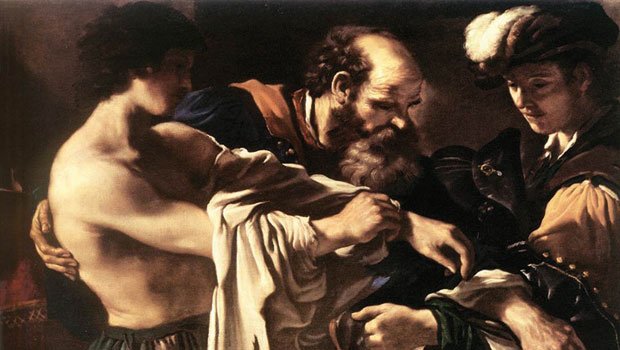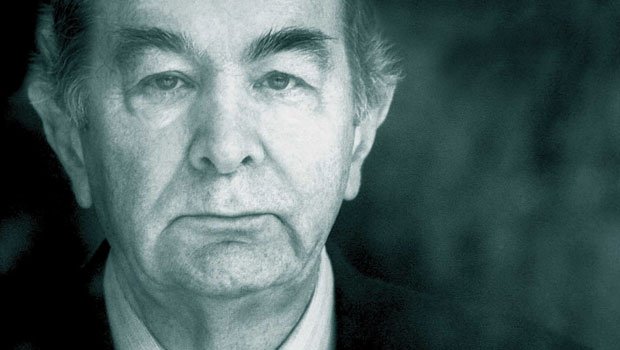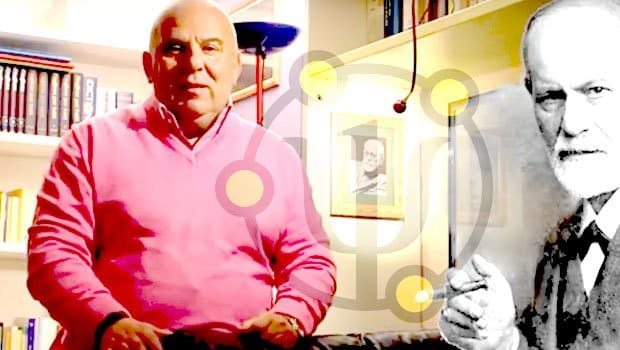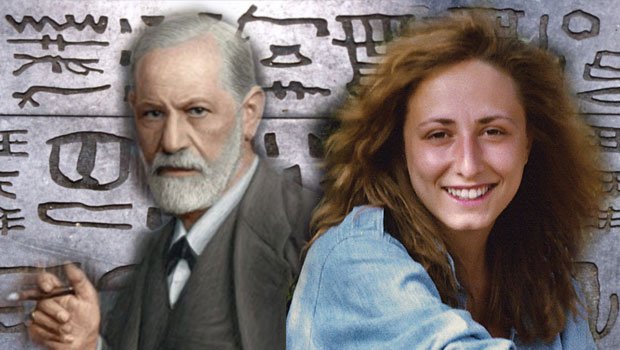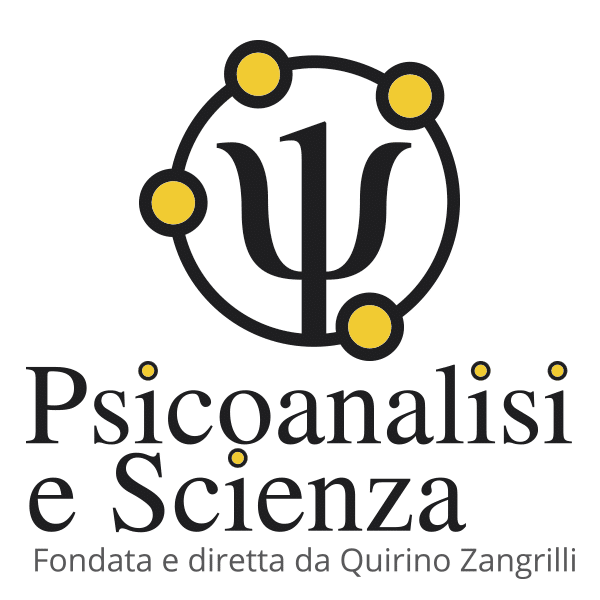Sommario
It is a common perceptive experience that in all living species stronger and weaker individuals exist: this fact is in relation to the capability of survival. While in all the animal species, the sporadic behaviour for the protection of the single being made by the group aside, the strongest ends up imposing its leadership, in the human society, the principles of solidarity and protection of the weaker ones have acquired a progressively growing importance.
My thesis is that the mechanisms of safeguarding the weakest, such intended from a psychobiological point of view, which are at the base of human cohabitation and of the edification of the civil society, under the influence of the Roman Catholic culture in its actual interpretation, have gone far beyond the original intentions, transforming themselves into the protection of a paranoid variable of the social body which is strongly anchored to the pleasure principal.
In this brief article I will indicate as “strong”, the individual who has acquired a better adaptation to the principle of reality, intended in Freudian terms as the addition of operations of the mind aimed at determining the abandoning of the attempt of satisfaction through hallucinations, and representing the true state of the external world with the prospect of an attempt of modification in order to satisfy the vital needs: “… that which is represented, is no longer that which gives pleasure, but that which is real, even if it is unpleasant”. 1
The principle of reality which is the fundamental regulating principle of the psychic functioning, appears in a later moment of both the species and the individual’s evolution, as a modification of the pleasure principle which, before, was the unique sovereign.
While under the influence of the pleasure principle the human being considers only the activities which can give him an immediate satisfaction of the desires and a lowering of the tensions, under the dominium of the principle of reality the individual acquires the foundations of civilisation: the satisfaction of the needs-desires happens in an indirect manner and delays its result according to the conditions imposed by the external world: it is the eternal tale of “The Ant and the Grasshopper” eternalised by Jean de La Fontaine.
But while, even in the world of fairy tales, one presumes that the grasshopper without food dies when winter arrives unless the ant, sacrificing part of its gatherings made with hard work, doesn’t help it with an impulse of civil solidarity, on the other hand in the pedagogical fantasies derived from Russeau, the prodigal son is received with joy and satisfaction.
However, the evangelist Luke already gives us a clear version of the situation:
Luke 15:11-32
The Parable of the Lost Son
11 Jesus continued: “There was a man who had two sons. 12 The younger one said to his father, ‘Father, give me my share of the estate.’ So he divided his property between them.
13 “Not long after that, the younger son got together all he had, set off for a distant country and there squandered his wealth in wild living. 14 After he had spent everything, there was a severe famine in that whole country, and he began to be in need. 15 So he went and hired himself out to a citizen of that country, who sent him to his fields to feed pigs. 16 He longed to fill his stomach with the pods that the pigs were eating, but no one gave him anything.
17 “When he came to his senses, he said, ‘How many of my father’s hired men have food to spare, and here I am starving to death! 18 I will set out and go back to my father and say to him: Father, I have sinned against heaven and against you. 19 I am no longer worthy to be called your son; make me like one of your hired men.’ 20 So he got up and went to his father.
“But while he was still a long way off, his father saw him and was filled with compassion for him; he ran to his son, threw his arms around him and kissed him.
21 “The son said to him, ‘Father, I have sinned against heaven and against you. I am no longer worthy to be called your son. 22 “But the father said to his servants, ‘Quick! Bring the best robe and put it on him. Put a ring on his finger and sandals on his feet. 23 Bring the fattened calf and kill it. Let’s have a feast and celebrate. 24 For this son of mine was dead and is alive again; he was lost and is found.’ So they began to celebrate.
25 “Meanwhile, the older son was in the field. When he came near the house, he heard music and dancing. 26 So he called one of the servants and asked him what was going on. 27 ‘Your brother has come,’ he replied, ‘and your father has killed the fattened calf because he has him back safe and sound.’
28 “The older brother became angry and refused to go in. So his father went out and pleaded with him. 29 But he answered his father, ‘Look! All these years I’ve been slaving for you and never disobeyed your orders. Yet you never gave me even a young goat so I could celebrate with my friends. 30 But when this son of yours who has squandered your property with prostitutes comes home, you kill the fattened calf for him!’
31 ” ‘My son,’ the father said, ‘ you are always with me, and everything I have is yours. 32 But we had to celebrate and be glad, because this brother of yours was dead and is alive again; he was lost and is found.’ “
The event is clear: it is a pity that the evangelist Luke tells us nothing more about what happens later. But all those who practice Psychoanalysis as professionals know well the sequel of the events: the inevitable affirmation of the compulsion to repeat which will make the subject place himself in a destructive, painful and humiliating situation again.
The story of The Lost Son is similar to that of many subjects fixed on the pleasure principle, often with borderline syndromes which attempt to resolve themselves through the drug addiction.
Such subjects, characterised by perverse and narcissistic personalities become, despite themselves, arbiter of the destiny of entire families which are subdued to the auto- and hetero-destructive strategy of the mentally ill. Economic wealth and vital energies are consumed in an useless sacrifice placed at the service of the expiation of the unconscious sense of guilt of the entire family or social group.
And Luke tells us nothing else about the effect which that manifestation of unconditional love will have on the lost son; not to mention the wise son who passed all his life working the land: I challenge the readers to establish whether or not they even remember his existence!
The people who have conformed to the principle of reality in the Western civilisation, which is still so permeated with animism, have little social importance: they only serve to tow a society founded on the safeguarding of individuals who are psychobiologically weaker and, when they dare show their perplexities, they are considered problematic elements, as happens in Luke’s parable.
Our existence is a game played between a weak person who pushes towards destruction, and the Power which uses masses of suffering people to maintain the status quo and which tries to clean its conscience periodically.
In order to fulfill this operation, mechanisms of delirious defence (religious and political ideologies) have fused into a unique system of falsification of the reality which S. Fanti defined, coining a fortunate neologism, “relitics” (religion + politics).
This is what has happened in the mental illness field.
Under the pressure of a false interpretation of the reality, some have even theorised that mental illness does not exist in itself but it is only the product of the conflict between the individual and the society: by changing (democratising and humanising) the society the mental illness would have been eliminated.
It is obvious that, coherently with these conditions, the mentally ill patient (because of his illness) becomes a kind of politically persecuted species and denying that the conflict can be embedded in the urging bases (sexual-aggressive) of the human being, we have ended up representing the asylum as a concentration camp.
It is evident that the asylum structures in the pre-Basaglian era (the era before the psychiatric reform in Italy by Basaglia) were indefensible realities, but an ordainment which concretely eliminated the mental illness as a social reality (on the basis of its incorrect theoretical assumptions), abandoning the patients and their families to their own destiny, seems to be just as indefensible.
The tolerance, sustained by an unconscious complicity, of the weakest begins from the tenderest age (I must once again remind you, because it is very difficult to separate oneself from the prejudice due to the grade of conditioning to which we have been submitted, that by “weak” I intend he who is still under the influence of the pleasure principle and has not reached the principle of reality dominium).
This tolerance is supported by a chain of unconscious senses of guilt which derive from phylogenetic traumas of abandoning.
An abandoned parent, in order to fill his own void, because of the impossibility of elaborating a conflict which is by him denied, structures a symbiotic relationship with his child who incarnates the Image of the loss. 2
An indissoluble bond is structured (if not through hard psychoanalytical work by one of the family elements to which, the other family element will oppose himself with all his power, for certain) which is sometimes camouflaged by a false shell of formal independence.
What does the father, “tender of heart”, do by welcoming his lost son back into the home again? He strengthens his omnipotence by putting his son, once again, in the condition of the breastfed baby who sees the breast arriving at the first cry.
In the past, one was sure of the importance of the frustration in the building of the Ego; nowadays, sharing pseudo-psychological contents of the ideological type, we have come to the point where a father, to be able to spank his son, has to make a formal written request to the congregations called “Ethic Committee for the Protection…”
Thus, what I am about to tell you, happens.
The normal child is animated by sexual-aggressive pressures that provoke deep senses of guilt in him (from this the frequent questions arise such as “Daddy, are you ok?”, “Mummy do you still love me?”, etc.). If children had the physical development of adults and they could, therefore, achieve their urges, I believe that the human species would long be extinct: the Cambodians who have lived under the “Pol Pot Children” regime know this well.
The senses of guilt push towards the unconscious construction of situations which produce manners of expiation: children provoke their parents in order to be punished.
There is no behaviour more sadistic than that of a parent who does not punish his child (and sometimes the punishment must necessarily be physical): they urge him towards an exhausting escalation of provocation in the attempt to, unfortunately in vain, reach the punishment which will reset the senses of guilt.
In this case we assist, therefore, that classical neurotic behaviour of hysterical parents who scream terrible threats without having any credibility.
Children need limits and guidances: the falsely progressive behaviour (politically correct) of our era disguises the unconscious rivalry of the parents and shows their false presence.
The Blame
If we wanted to ulteriorly expand our reflections, we should conclude that such a perverse chain of unconscious senses of guilt and the attempts of neutralising them, are rooted in the very own phylogenesis of Man. If we admit with Freud, the existence of the primary process, by definition outside of space-time, we could say that the great traumas of humanity continue to subsist in the unconscious until their mnestic traces find a representation in the secondary process and there, binding themselves they are neutralised.
Let’s consider, for example, the situations of grief. The situations of grief are traumatic situations. There are situations of physiological grief in which the mourning is accomplished within a few months: the libido investment is slowly withdrawn from the image of the defunct and is bound to another object or situation.
There are, instead, situations of pathological mourning in which the event sets itself as the repetition and reinforcement of a trauma. Freud systematically treated this argument in “Totem And Taboo” (1912-1913) in which he hypothesised the murder of the Primigenial Father by the allied sons in their homosexual union. The remembrance of the criminal act (break-through of the repressed) would structure the phylogenetic trauma from which the anthropomorphic module of the conflict would originate: The Oedipus-castration, which is nothing other than, if not the unremovable pressure fuelled by the compulsion to repeat, to rebuild the traumatic situation, in the attempt of gaining access to the pre-traumatic moment. The Oedipus existence is sustained by a perennial state of traumatic mourning in humanity which has never been eliminated.
All the monotheistic religions are founded on the representation of the parricide sin. Christianity has added to this the reversed repetition (murder of the son by the father) in the sacrifice of Christ. If the Old Testament is the religion of the Law of the Father, the New Testament is the religion of the attempt of expiation-reparation by the Son. The crucifixion of Christ is a traumatic reinforcement from which humanity cannot recover.
The proliferation of religious orders, recognised by the Catholic Church (Worshippers of the Blood of Christ, Sisters of the Calvary, etc.) testimonies this pressure towards the “imitatio Christi”: a form of the compulsion to repeat. The unconscious attempt is that of reconstituting the traumatic situation, the Crucifixion of Christ, in order to return to the antecedent moment, the moment which preceded the trauma.
The trauma is that of the father who kills his son: the application of the law “Eye for an eye”. Christ asks the Father to spare him (“My Father, if it is possible, let this bitter Chalice pass from me. “) but it is the same Father who wanted the Mission of the Redemption of Christ who, in fact, before dying, affirms: “Father, your will be done!”.
The primigenial horde of sons consumed the murder of the father and so the son allows himself to be put on the Cross because it is the will of the father: he atones the sin.
A circular Oedipus is constituted: Oedipus I and Oedipus II 3 , in the attempt to repeat the traumatic situation with the aim of going back to the antecedent state.
Unfortunately, it would seem that the primary trauma still has not been sufficiently abreacted, also because sons continue to kill fathers and fathers continue to kill sons. We can see this throughout the history of humanity, in the wars and in the actual social phenomena.
The Forgiveness
Never before, has the theme of forgiveness been so debated as it is in this historical era in the West. The television journalists seem to have received a memorandum which exhorts them to ask the victim’s relatives: “Do you forgive the murderers of your loved one?”.
Overlooking the cynicism of such actions we cannot remain silent about the fact that such manifestations are the extension of the precept of the New Testament “Turn the other cheek”.
Our evenings are often enlivened by placid interviews with ferocious murderers who instead of expiating their guilt in prison, far from the civil world, they become media stars: how long before there will be a quiz between murderers and rapists? There is even an association inspired by the precept: “God save Cain”.
Why?
Forgiveness is a form of denial and contemporaneously an unconscious admission of the existence, deep within each one of us, of the same homicidal pressures which we observe in those who act out: the difference is obviously constituted by the Ego integrity which finds consented outlets of the aggressiveness (sublimation). We forgive in order to forgive ourselves: Christ himself addresses his Father with the famous phrase: “Father forgive them for they know not what they do!”, and yet the Romans were only unknowing authors of God’s inscrutable will, as Christ himself admits before taking his last breath.
Forgiveness is the extenuation of the parricide. We cannot accept the evidence: that in human beings an instinctual pressure towards parricide and matricide exists, sustained by a phylogenetic legislation denominated Oedipus. It is the eternal drama of the lack of awareness: Oedipus after having consumed the parricide and the incest, blinds himself and wanders around the world until his death, blind but aware, with his daughter Antigone. To sum up, he does not turn to Cain’s Protection Committee and serves his time.
Written by: Quirino Zangrilli © Copyright
Translated by Linda De Nardo
Notes:
1 S. Freud, Precisazioni sui due principi dell’accadere psichico, 1911, OPERE, Vol. 6
2 N. Peluffo: Immagine e fotografia, Borla , Roma, 1984.
3 Oedipus: phylo-ontogenetic legislation which psychobiologically establishes the aggressive-sexual need of possession-destruction (S. Fanti, Def. n° 379 del Dizionario di Psicoanalisi e micropsicoanalisi, Borla, Roma, 1984).
Positive Oedipus: The child between three and five years of age wants to sexually possess the parent of the opposite sex and kill the parent of the same sex (S. Fanti, Def. n° 374 del Dizionario di Psicoanalisi e micropsicoanalisi, Borla, Roma, 1984).
Oedipus II: in the reactivation of the uterus-infantile Oedipus the mother and/or the father desires to possess up to incest and destroy till death the child (S. Fanti , Def. n° 380 del Dizionario di Psicoanalisi e micropsicoanalisi, Borla, Roma, 1984).
Nel 2024 riceve il Premio Accademico d’Onore della Accademia Culturale Internazionale Cartagine 2.0.
Nel 2024 docente ad Almaty – Kazakhstan presso il workshop di psicoanalisi sul tema della violenza, promosso dall’Università di psicoanalisi di Mosca in collaborazione con l’Istituto svizzero di micropsicoanalisi.
Doctor Quirino Zangrilli was born in Fiuggi in 1955. Graduated with honours in Medicine and Surgery in 1980, he practices Psychoanalysis, with intensive method, since 1982. He is author of 72 scientific pubblications. He has attended as speaker or president of session to many national and international scientific Conventions. His book “La vita:involucro vuoto” (Life: empty involucre), published by Borla in 1993, has been in use by the Chair of Dynamic Psychology at Turin’s University since 1994. He is the author and founder of the multimedia review “Psicoanalisi e Scienza” (Psychoanalysis and Science), the most read Italian on line review of psychoanalysis. In 2012 he participated as a Speaker at the Scientific Festival of BergamoScienza. In 2013 he illustrated his research on the maternal-fetal interaction in the Special Session of the XI World Congress of Perinatal Medicine in Moscow with his relation “Intrauterine Imprinting”. He is visiting teacher at Moscow Institute of psychoanalysis and training psychoanalist of Swiss Institute of Micropsychoanalysis.
In 2024 he is a teacher in Almaty – Kazakhstan at the psychoanalysis workshop on the topic of violence, promoted by the Moscow University of Psychoanalysis in collaboration with the Swiss Institute of Micropsychoanalysis.
In 2024 he received the Honorary Academic Award of the Carthage 2.0 International Cultural Academy
Le Le Docteur Quirino Zangrilli est né à Fiuggi en 1955. Diplômé avec mention en Médecine et Chirurgie en 1980, il pratique la psychanalyse depuis 1982, en utilisant une technique intensive. Il est l’auteur de 72 livres et publications scientifiques. Il a participé en tant que conférencier ou président de session à de nombreuses conférences scientifiques nationales et internationales. Son livre “La vie : enveloppe vide”, publié par Borla en 1993, est adopté depuis 1994 par la Chaire de Psychologie Dynamique de l’Université de Turin. En 1994, il a reçu le “Prix national Ciociaria de médecine”. Il a conçu et fondé le magazine multimédia “Psicoanalisi e Scienza”, qui est le magazine de psychanalyse en ligne en italien le plus suivi au monde. (Source : Entireweb, Alexa, Google, Virgilio, Arianna., etc.). En 2012, il a participé en tant que conférencier à la colloque scientifique de BergamoScienza. En 2013, il a exposé ses études sur l’interaction materno-fœtale lors de la session spéciale du XIe Congrès mondial de médecine périnatale à Moscou avec le rapport “Intrauterine Imprinting”. Il est chargé d’enseignement au cours de spécialisation de trois ans en psychanalyse, psychothérapie psychanalytique et consultation psychanalytique à l’Université de Moscou. Il est membre didacticien de l’Institut Suisse de Micropsychanalyse et de la Commission pour la Pratique de celui-ci.
En 2024, il enseigne à Almaty – Kazakhstan à l’atelier de psychanalyse sur le thème de la violence, promu par l’Université de Psychanalyse de Moscou en collaboration avec l’Institut Suisse de Micropsychanalyse.
En 2024, il reçoit le Prix Académique Honoraire de l’Académie Culturelle Internationale Carthage 2.0.
В 2024 году является преподавателем в Алматы – Казахстан на семинаре по психоанализу на тему насилия, проводимом Московским университетом психоанализа в сотрудничестве со Швейцарским институтом микропсихоанализа.
В 2024 был награжден Почетной академической премией Академии Международной Культуры «Карфаген 2.0».

